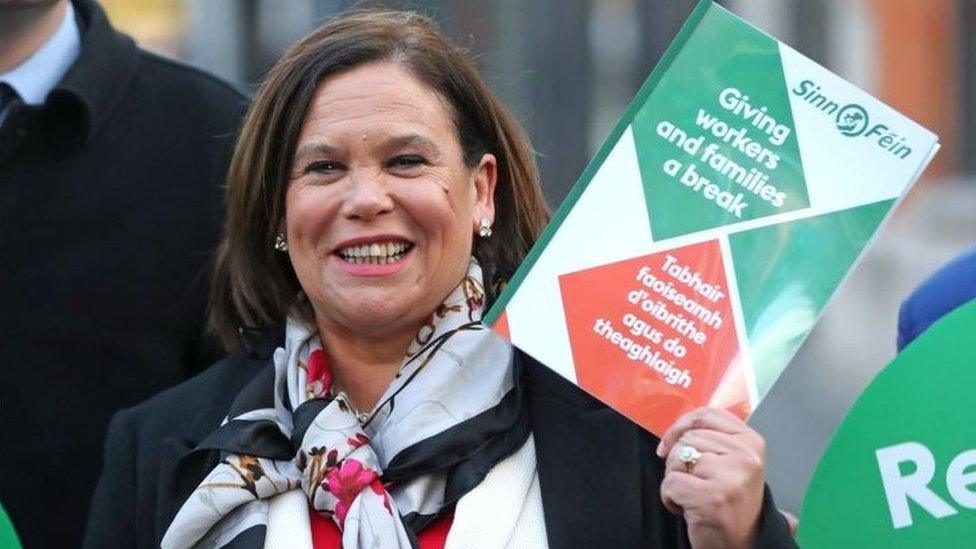Could EU's attitude to Irish unity mirror approach to German reunification?
- Published
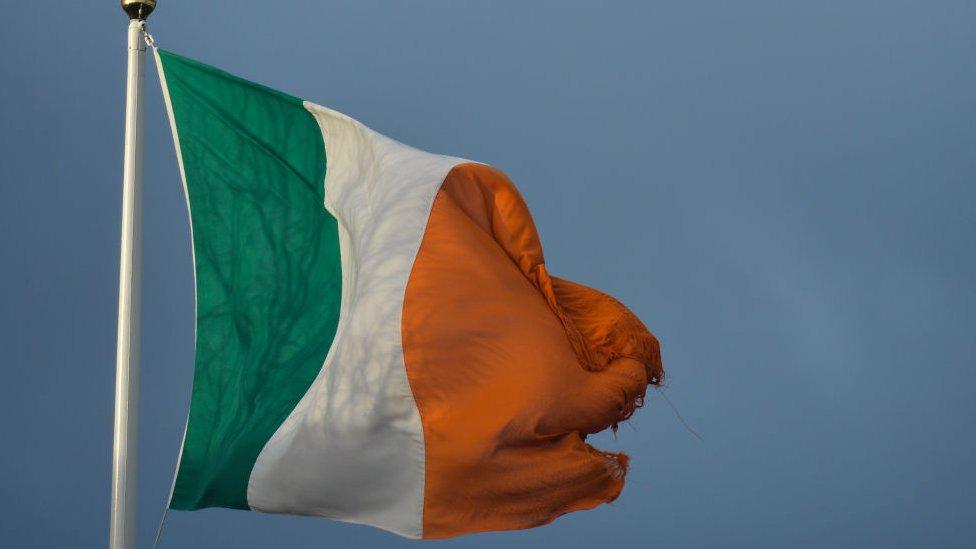
Mary Lou McDonald's confirmation to BBC Newsnight that she would ask Ireland's fellow EU member states to take a more active role in backing Irish unification won't surprise anyone who read Sinn Féin's election manifesto.
The section of the document which deals with Irish unity talks about the need for a future Dublin government to "engage with our friends and neighbours in the EU".
It specifically mentions the precedent set 30 years ago when "the EU financially and politically supported German reunification".
'Underlying sympathy'
Back in 1990 East Germany enjoyed a fast-track accession to the EU, not being treated as a new applicant but as a part of an existing member state.
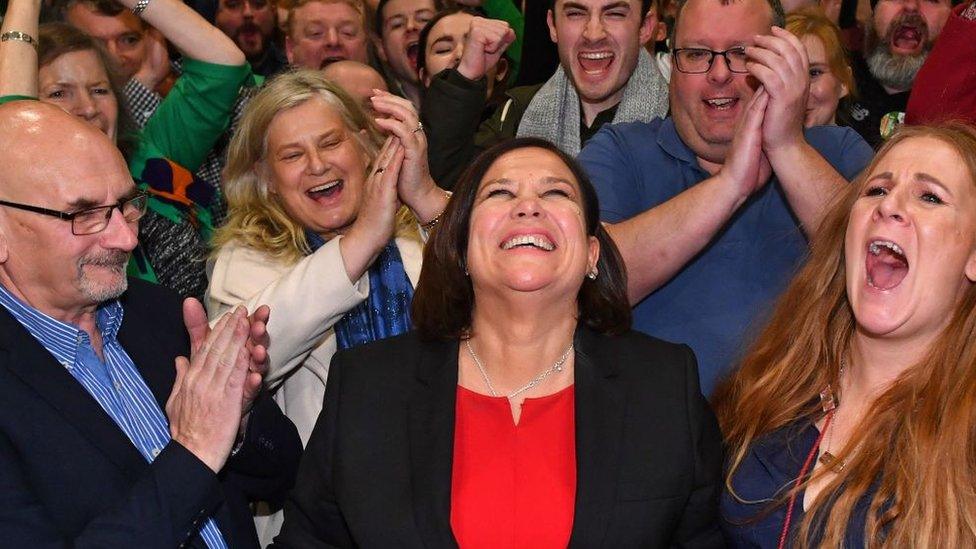
Mary Lou McDonald said a border poll was "just the direction of travel
Some European leaders like Margaret Thatcher and the Italian Prime Minister Giulio Andreotti were sceptical.
But the then Taoiseach Charles Haughey disagreed saying the Irish, as citizens living in a divided country, "would have an underlying sympathy with the efforts of any other people who wish to achieve their reunification, external".
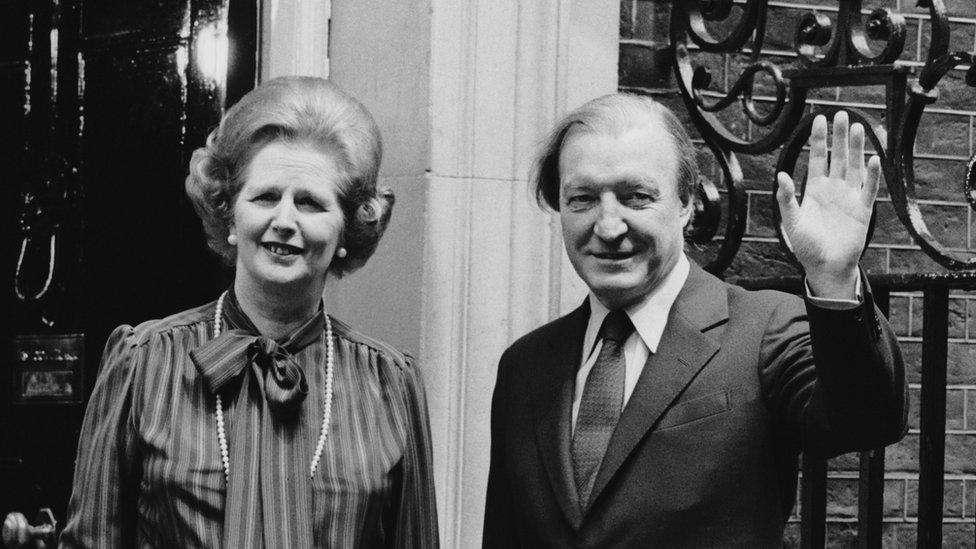
UK PM Margaret Thatcher and Irish premier Charles Haughey did not always see eye to eye
Three years ago, Fine Gael Taoiseach Enda Kenny ensured that - in the event of unification - Northern Ireland would follow the German precedent.
Mr Kenny described the declaration by EU leaders as "hugely important", but stressed it did not mean Irish unity would happen "in the immediate future", external.
Now, with her party in the ascendant, the Sinn Féin president is keen to encourage the EU to take a more partisan role.
'Partition has been a disaster'
Mary Lou McDonald told BBC Newsnight that the EU "needs to take a stand in respect of Ireland in the same way that it supported the reunification of Germany, in the same way that it has a position on Cyprus, for example, and a positive approach to the reunification of that country".
Buoyed by her latest election success Ms McDonald urged Ireland's allies and friends to recognise that "partition and division has been a disaster and that reunification, reconciliation and good relationship with our nextdoor neighbours is the way forward".
It seems unlikely the EU will be easily convinced that it should become an active persuader for a united Ireland.
Throughout the Brexit negotiations, EU chiefs repeated their commitment to the Good Friday Agreement.
EU officials are proud of their role in providing significant financial support for the peace process and will be mindful of the need to avoid stepping on egg shells.
The Alliance leader and former MEP Naomi Long told BBC Good Morning Ulster she thinks it's "highly unlikely" the EU will take a stance on supporting Irish unity.
Mrs Long said she didn't "imagine the EU will want to depart from its strong support for the Good Friday Agreement".
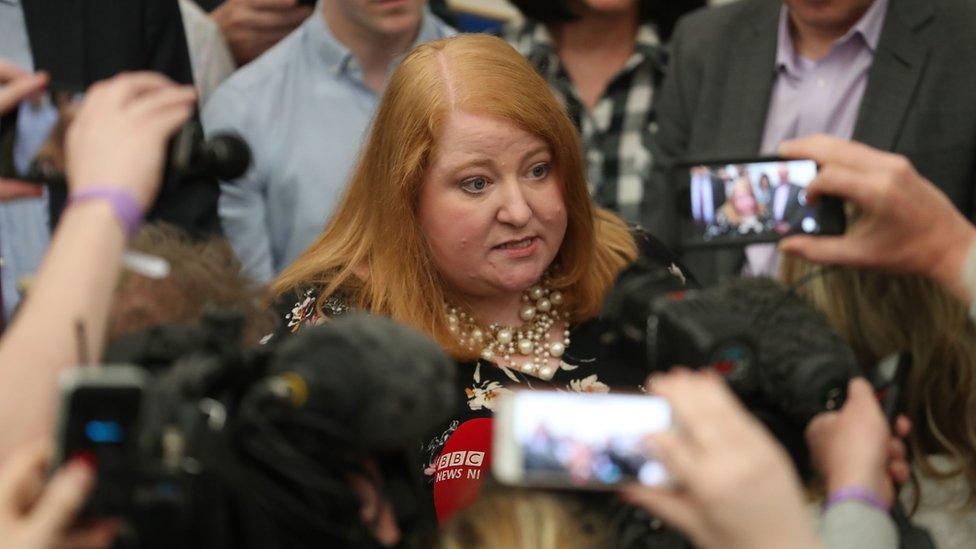
Former MEP Naomi Long said it is unlikely the EU will break from its support for the Good Friday Agreement
That said, in the aftermath of Brexit, the EU might not feel quite so bound to stay out of a dispute which will no longer involve two member states.
A future Irish government including Sinn Féin might make more headway encouraging the EU to make clear that financial support will be forthcoming in the event of unification, rather than getting it to take sides directly ahead of a any border poll.
Whilst the East German example cited by Mary Lou McDonald clearly has resonance for Northern Ireland, the Cypriot precedent introduces multiple layers of complexity.
In 2004 EU chiefs encouraged Turkish Cypriots and Greek Cypriots to vote to join the European Union as a united island. However the plan went awry when the Turkish north voted for unification whilst the Greek south voted against, external.
The EU-backed Annan plan failed for a variety of reasons - most to do with the troubled legacy of the conflict which still divides the island.
As with the debate about partition and unification closer to home, the devil is in the detail.
- Published11 February 2020
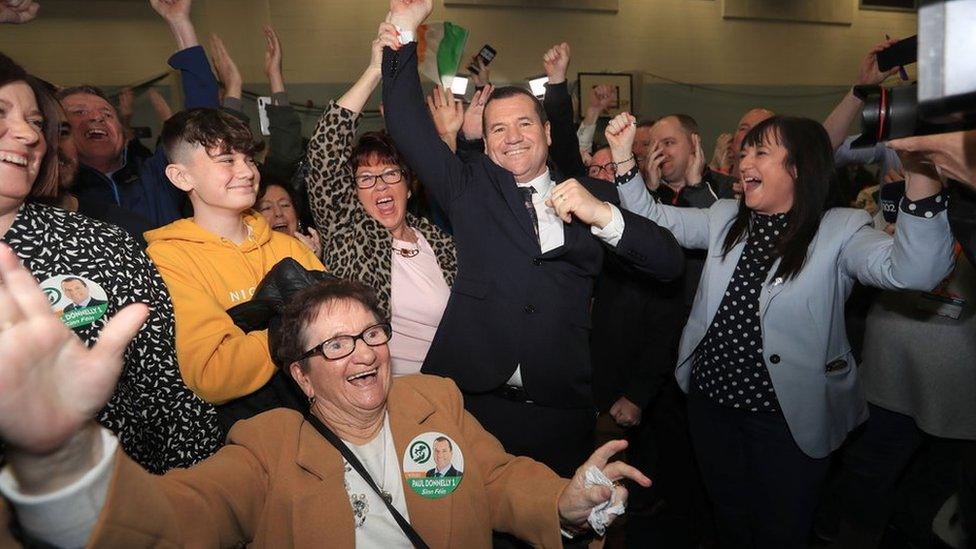
- Published11 February 2020
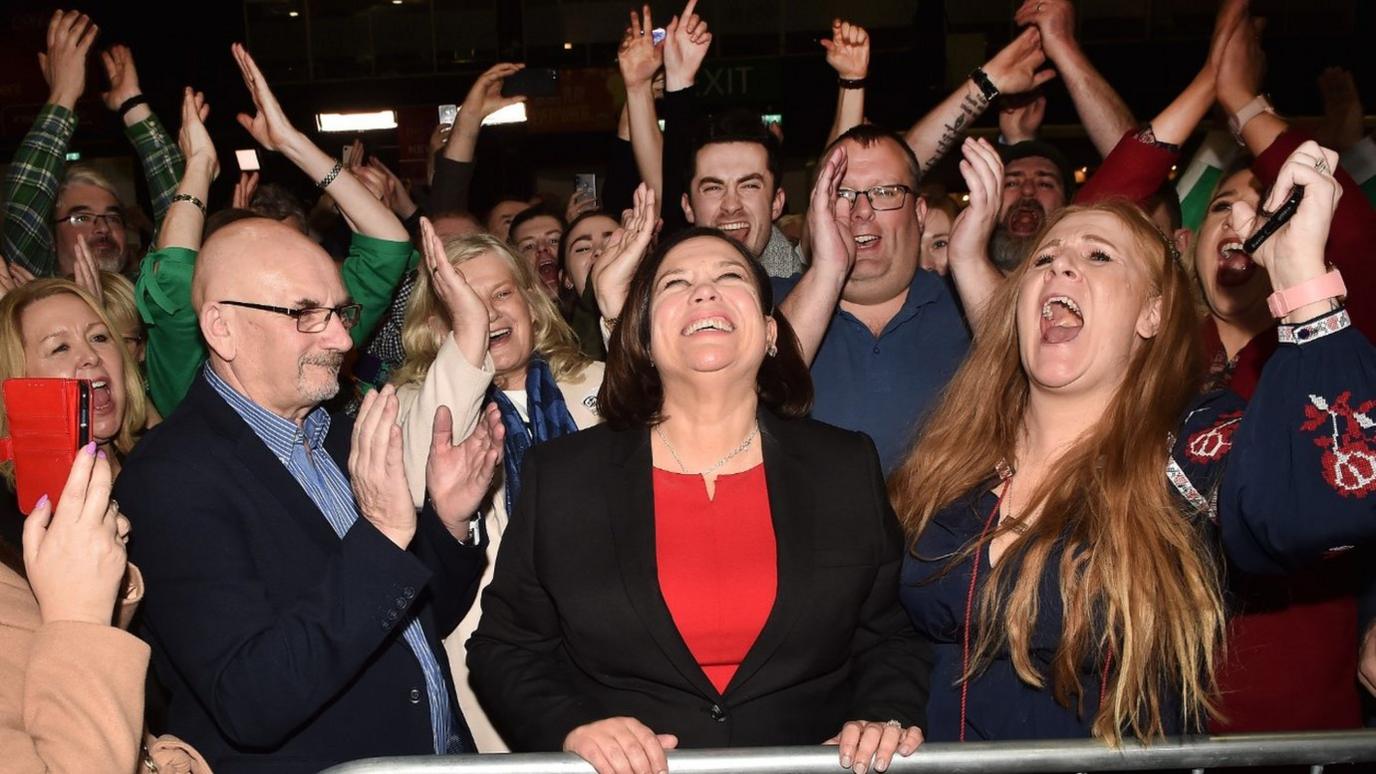
- Published10 February 2020
